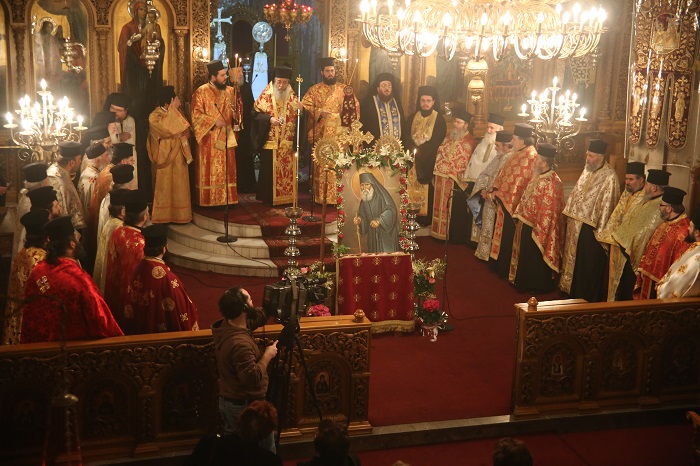Dozens of new saints, including martyrs and confessors, were canonized at a meeting of the Holy Synod of the Greek Orthodox Church in Athens on July 14-15.
Among the 52 newly canonized saints, there are seven bishops who martyred in the name of Christ in April 1821 together with the Patriarch of Constantinople Gregory V – Eugene of Anchia, Joseph of Thessalonica, Gregory of Derkia, Dionysius of Ephesus and Dorothy, Dorothy Ioanikii Tarnovski.
They were all executed by the Ottoman authorities at the beginning of the Greek War of Independence, which ended in 1832 with the signing of the Treaty of Constantinople.
The body of Patriarch Gregory was hung by the Turks at the gates of the Patriarchate for three days and three nights for edification, and then thrown into the sea, although he did not take part in the revolution (the Patriarch was canonized on the centenary of his death).
The synod also glorified Metropolitan Plato of Chios and 43 other people tortured by Ottoman troops during the massacre in Chios on Good Friday in 1822. The list includes priests, deacons, hieromonks and monks. Authorities have decided to execute residents of the island of Chios for their support in the fight for Greek independence.
The Holy Synod also ordered the canonization of the monk Anastasius (Gordios; 1654-1729), the most influential clergyman of the era of Turkish rule. He is one of the so-called “teachers of the nation” and is considered a forerunner of modern Greek education. His honest head is kept in the monastery “St. Paraskeva” in the region of Agraf (Greece).









